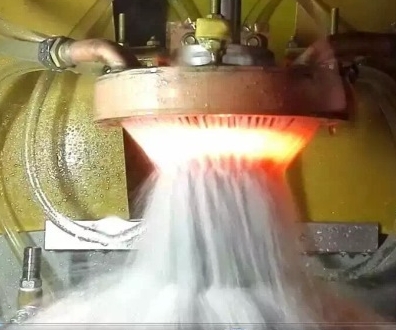- 01
- Feb
What are the effects of high frequency quenching?
What are the effects of high frequency quenching?
Quenching is a kind of heat treatment, including general quenching, pulse quenching and austempering.
Generally, quenching makes the workpiece have a certain microstructure, so as to ensure that a certain section part meets the required mechanical properties after tempering. Can improve hardness and strength; increase wear resistance.
Pulse quenching is to heat the workpiece in a very short time (such as 1/1000 second) with the help of high energy of the pulse, and cool it very fast, so that it can obtain extremely fine grains and high hardness, no deformation, no oxide film, Wear-resistant and corrosion-resistant. Tempering is not required after quenching.
Austempering is to heat the workpiece to the quenching temperature, put it into a warm salt bath that causes a certain structure to change, and keep it for a period of time to obtain bainite and other structures, so that it has higher strength and toughness. The quenching stress is small, which can prevent denaturation and cracking. Suitable for thin and larger size parts.

